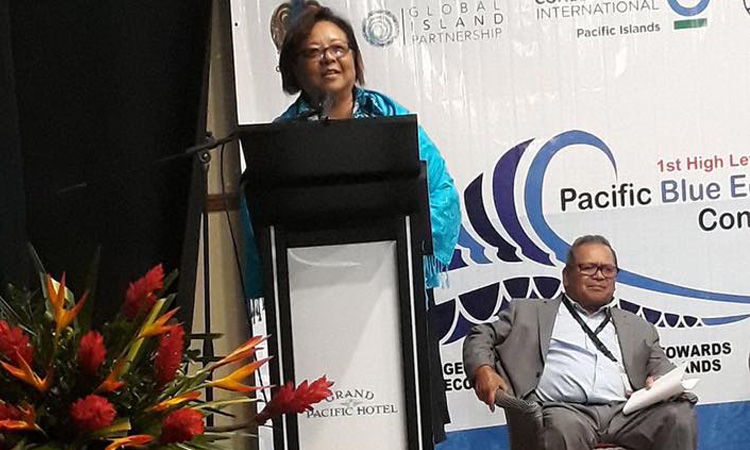Pacific values, inclusive development, justice at the heart of Blue Economy, says PIANGO

“A Pacific Blue Economy must embrace human rights at the very heart of the its sustainability agenda, put people at the front and centre of the development paradigm and recognise that improving human wellbeing is the ultimate outcome of development efforts.
“As Pacific Islanders and stewards of this blue continent, the Pacific Ocean we call home, we must be vigilant against development models that extract and destroy our natural resources. We must insist on participatory and inclusive development that restores and sustains life, respects human rights and human dignity and upholds community wellbeing. As stewards of this vast blue continent, we must stand strong, now more than ever, to preserve our region, our heritage and the best aspects of our traditions, to enhance them for the benefit of future generations.”
Speaking at a session on the “Blue economy, human rights and community wellbeing,” PIANGO Board Chair, Sarah Thomas Nededog made the comments at the Pacific Islands Development Forum (PIDF) Blue Economy Conference currently underway in Suva, Fiji.
Ms Nededog said that over the past 36 months, PIANGO had facilitated structured dialogue and talanoa on the theme of “Rethinking Development and Reshaping the Pacific We Want,” reflecting on issues affecting Pacific Island communities from a critical perspective and exploring how to further strengthen civil society to make game-changing contributions to ensure a transformative, inclusive development agenda for the Pacific.
“The Pacific Ocean is now considered the new frontier and the basis for the economy of the Ocean – the “Blue Economy.” The commercial utilisation of oceans is steadily increasing and there are increasing demands on natural marine resources and growing economic interests resulting in conflicts of interest as well as the need for sustainable ocean governance. Pacific Island communities are particularly affected by these ocean developments as our people rely to a large extent, on marine resources for our livelihoods. Environmental pollution of oceans and climate change increasingly threaten existing economies,” Ms Nededog said.
“PIANGO is amplifying the concerns about unsustainable economic growth and the necessity to consider planetary boundaries, human rights and community wellbeing in what would constitute a meaningful Pacific blue economy.
“Of relevance to a Blue economy in the Pacific are our values of inclusion, justice, equity, equality to ensure true and sustainable development. We need to look at ethical values, causing no harm especially to people who cannot advocate for themselves. We need to ensure there are social and environmental safeguards and all citizens are engaged in a participatory manner and should not be exploited, manipulated or patronised because developers want those resources,” she said.
There is a danger that the current processes to regulate ocean governance will over-emphasise economic aspects and that human rights aspects and environmental protection will be pushed into the background. Traditional access and ownership rights of local communities are especially endangered when profits are the mainstay of “development proposals” that seek to extract from natural resources. Profits also drive processes that are ignorant of the community’s right to extend (or not) their Free, Prior and Informed Consent to such proposals.
“The experimental deep sea mining project Solwara One in Papua New Guinea poses environmental threats and violation of the rights of indigenous resources owners and human rights of local communities.
“Deep sea mining is an example for such growth-oriented strategies and unsustainable utilisation of marine resources. It disregards the rights of local communities and their livelihoods, and satisfies the resource needs of industrialised countries and emerging economies,” Ms Nededog said.
